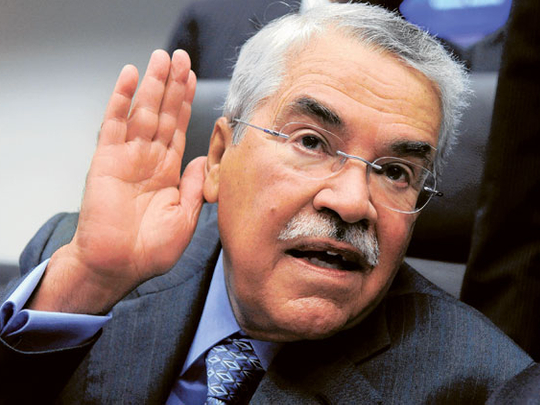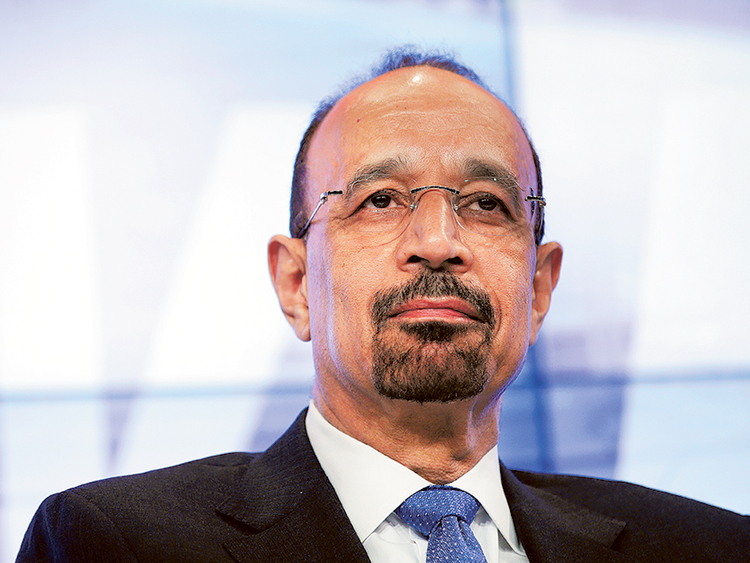
Dubai: Saudi Arabia on Saturday replaced its long-serving oil minister as part of a major government shakeup, according to a royal decree.
Ali Al Naimi, who has been oil minister since 1995, was one of the most powerful figures within the Opec. He will be replaced by Khalid Al-Falih, chairman of the Saudi Arabian Oil Co.
Al Naimi was the first Saudi national to head Saudi Aramco starting in 1984.
“I think it has been on the cards. We expect further such reshuffles over time. This is unlikely to change current oil policy or change in stance. We may see short-term volatility in oil prices. But over the medium term it won’t have a material impact,” Saleem Khokhar, head of equities at NBAD Asset management said.
Al Naimi was responsible for implementing Saudi’s 2014 energy policy, which focused on securing market share.
The move caused oil markets to tumble.
In April, when Opec ministers met with Russia and other non-Opec oil producers, Venezuelan oil minister Eulogio Del Pino said Al Naimi was “no longer the voice of authority.”
Al Naimi’s influence appeared to have been curbed by Prince Mohammed bin Salman, who has taken charge of economic policy.
Saudi Arabia is currently undergoing a massive economic re-structuring that will include the public listing of Saudi Aramco, the roll back of state subsidies, and implementation of a value-added tax.
“Whether the new appointment signals a change in KSA strategy when it comes to oil is not yet clear. In my opinion, this will not necessarily mean a change in Saudi Arabia’s view on oil. I believe Saudi Arabia’s commitment to Opec means they will only not make unilateral decisions unless discussed in one of their meetings. Thus, I don’t expect a huge impact from this news on oil prices,” said Amr Al Alfy, head of global research, Mubasher Financial.
Al Naimi’s replacement, Khaled Al-Faleh, was just named health minister last year. He was president and CEO of Saudi Aramco from 2009 until 2015, when he became chairman.
Along with the oil ministry, King Salman also made several other changes to government. Tawfiq Al Rabiah will replace Al-Faleh as Minister of Health.
The Ministry of Water and Electricity has been abolished.
The Ministry of Commerce and Industry has become the Ministry of Commerce and Investment. The Ministry of Labour and Ministry of Social Affairs have been merged together, and a new General Authority for Entertainment and another one for Culture will be established as per the new amendments.
Majed Al Qasabi was appointed as Minster of Trade, Sulaiman Al Hamdan will serve as Minister of Transport, and Mohammad Saleh Benten will be Minister of Hajj. Ahmad Al Khulaifi was appointed as Governor of the Saudi Arabian Monetary Agency. Suliman Aba Alkhail will serve as President Imam Muhammad ibn Saud Islamic University.
The King also appointed Yasir Al-Rumayyan, an adviser to the Royal Court and secretary general of the Public Investment Fund, and former SAMA governor Mohammed Al-Jasser as advisers to the General Secretariat of the Cabinet, state media reported.
(with inputs from wires)













